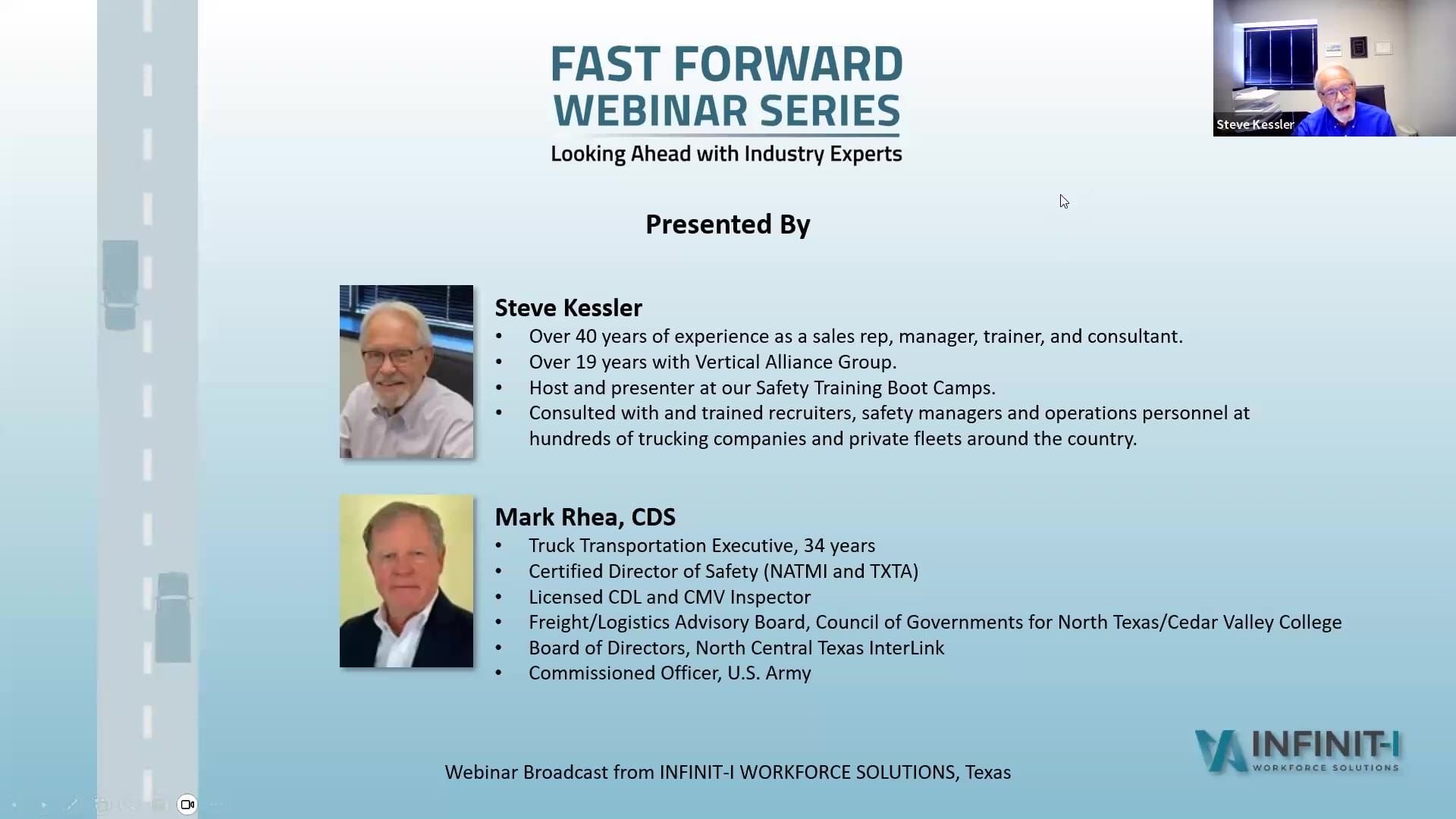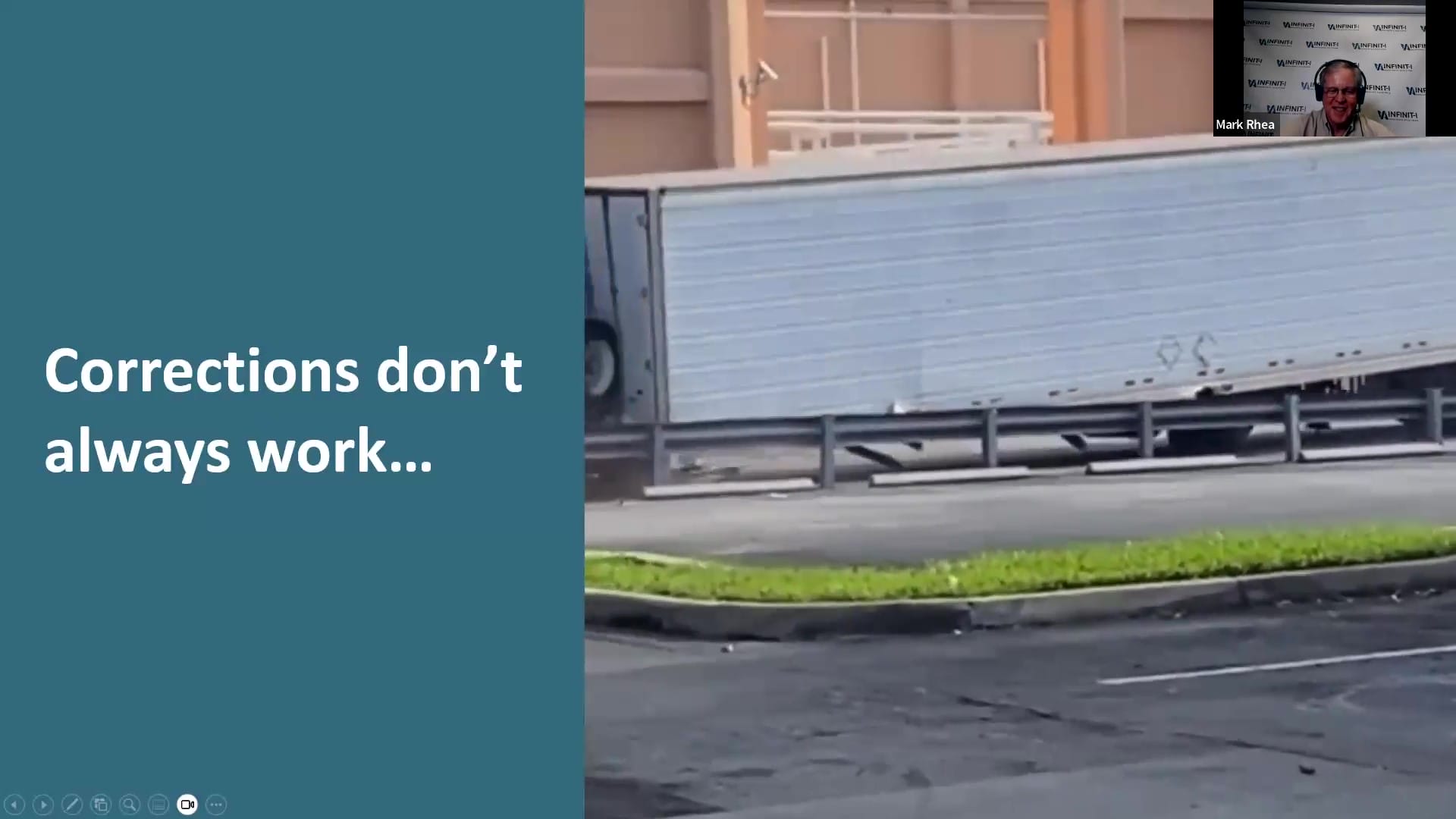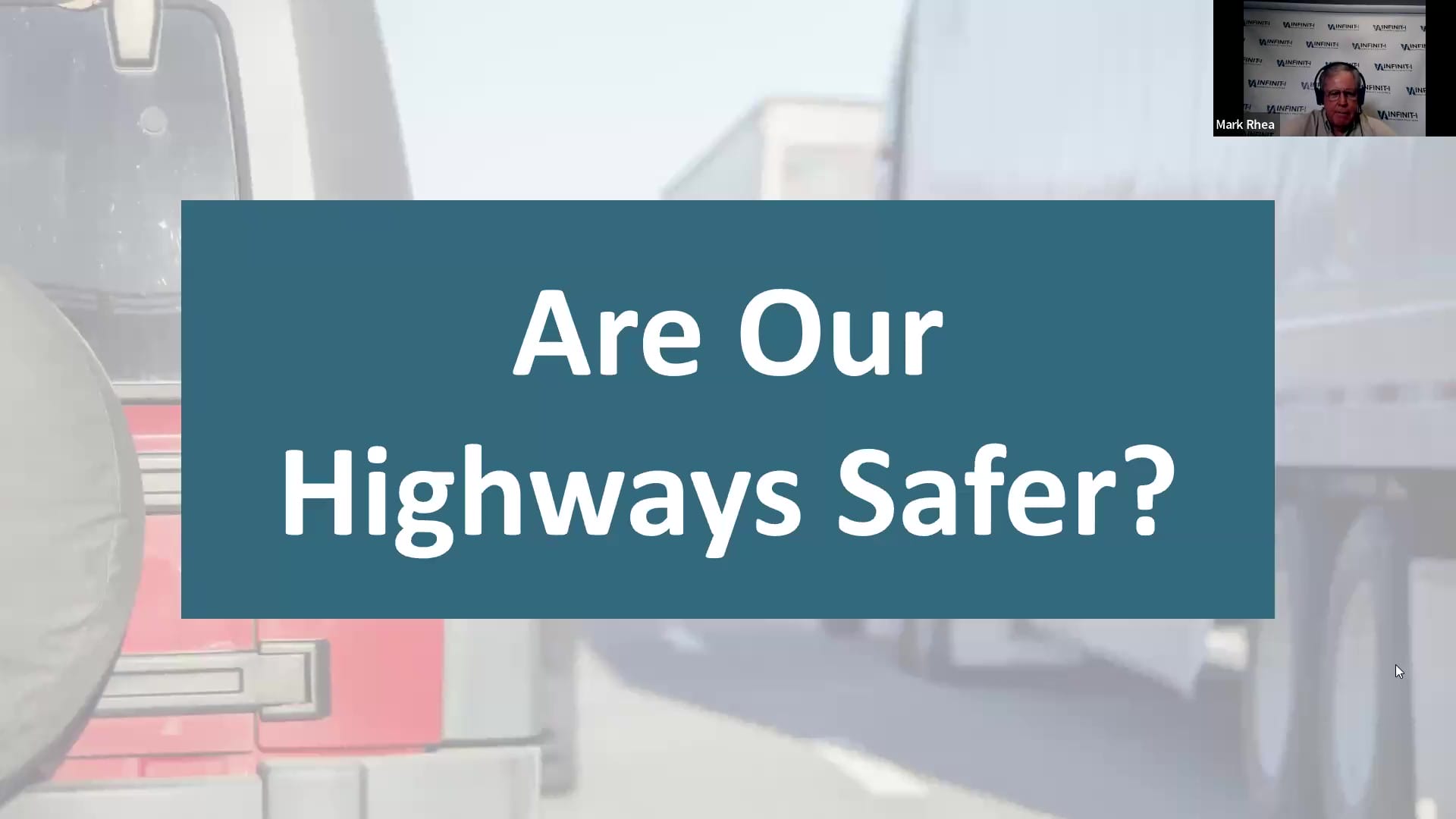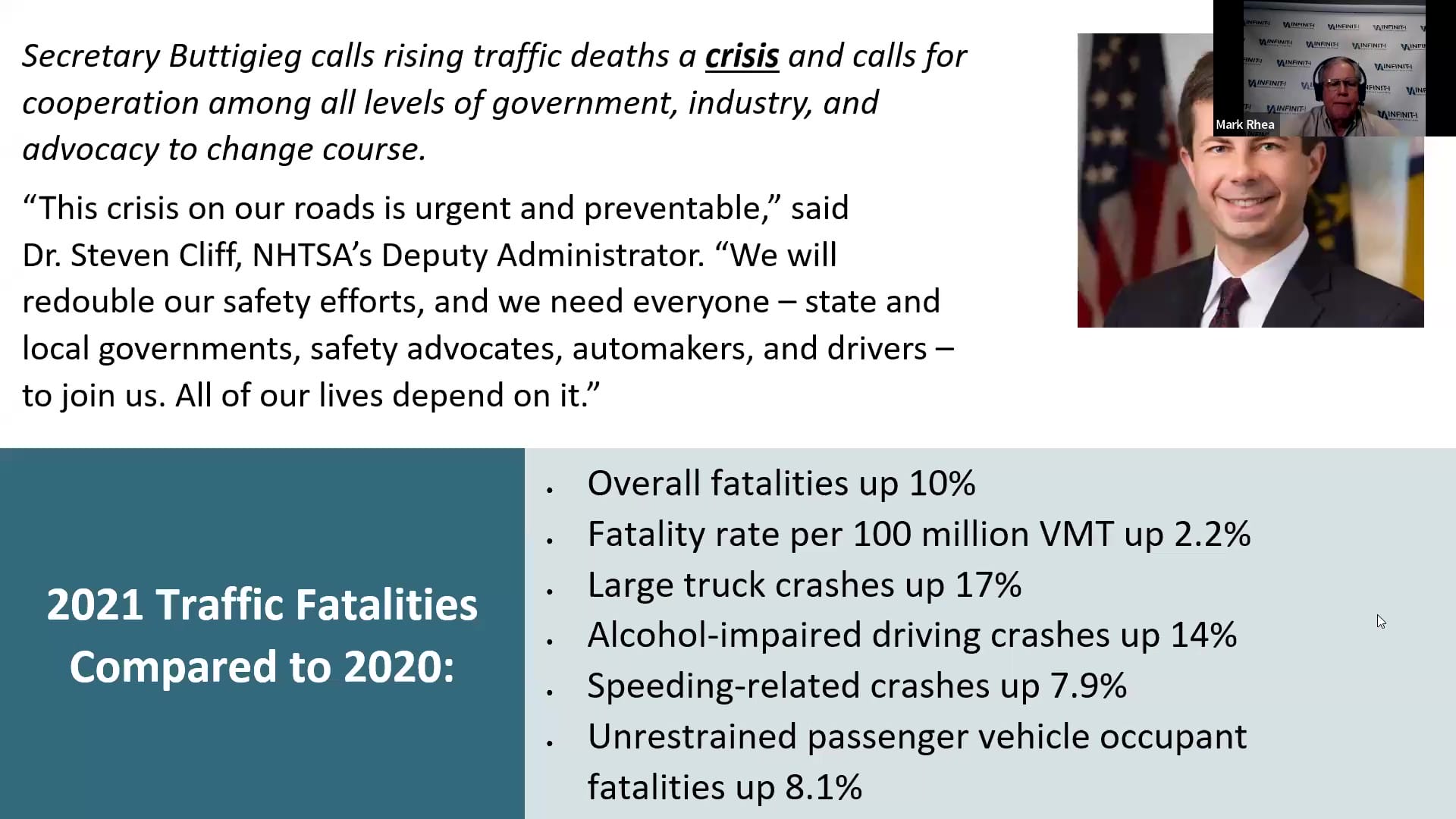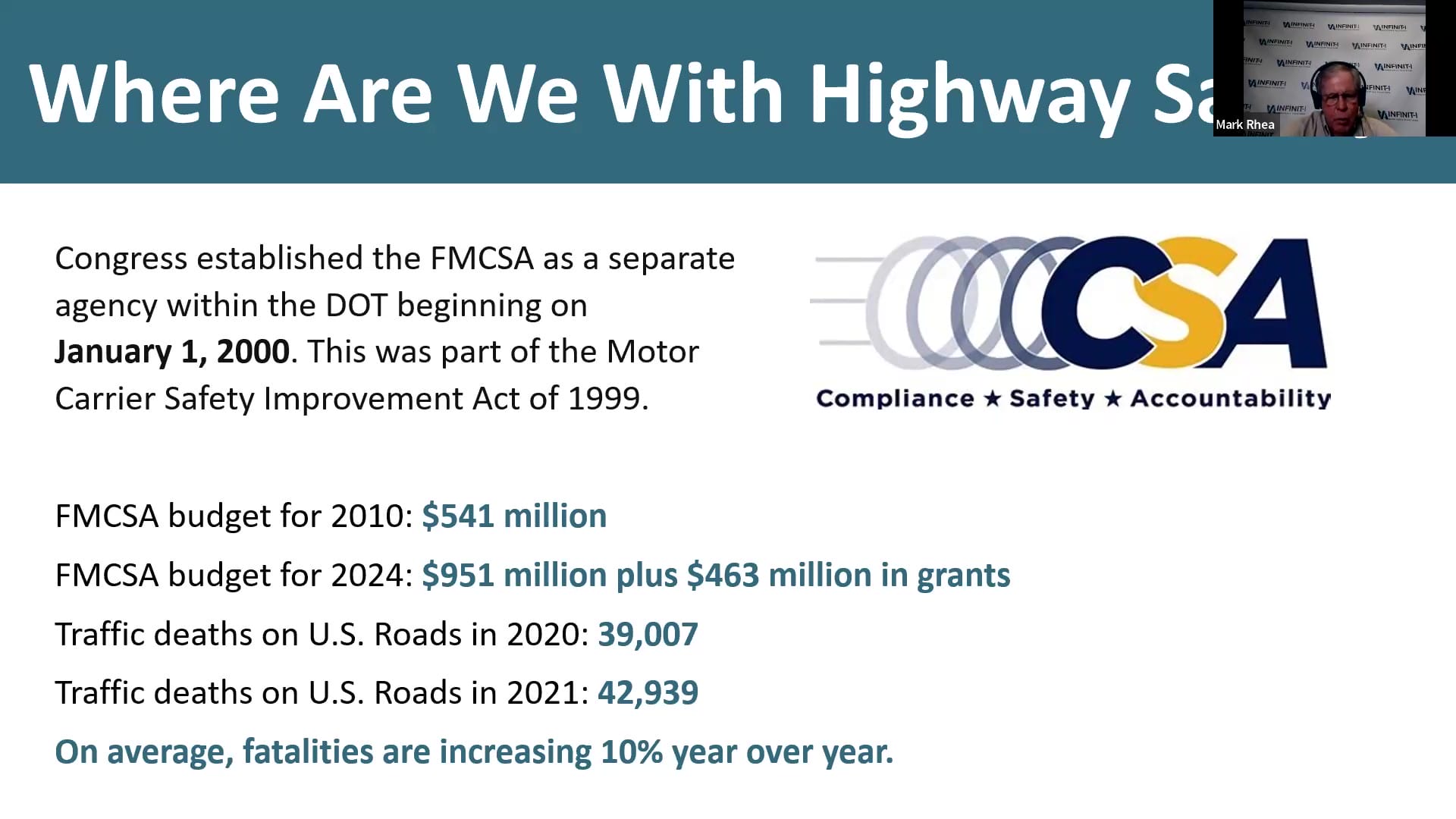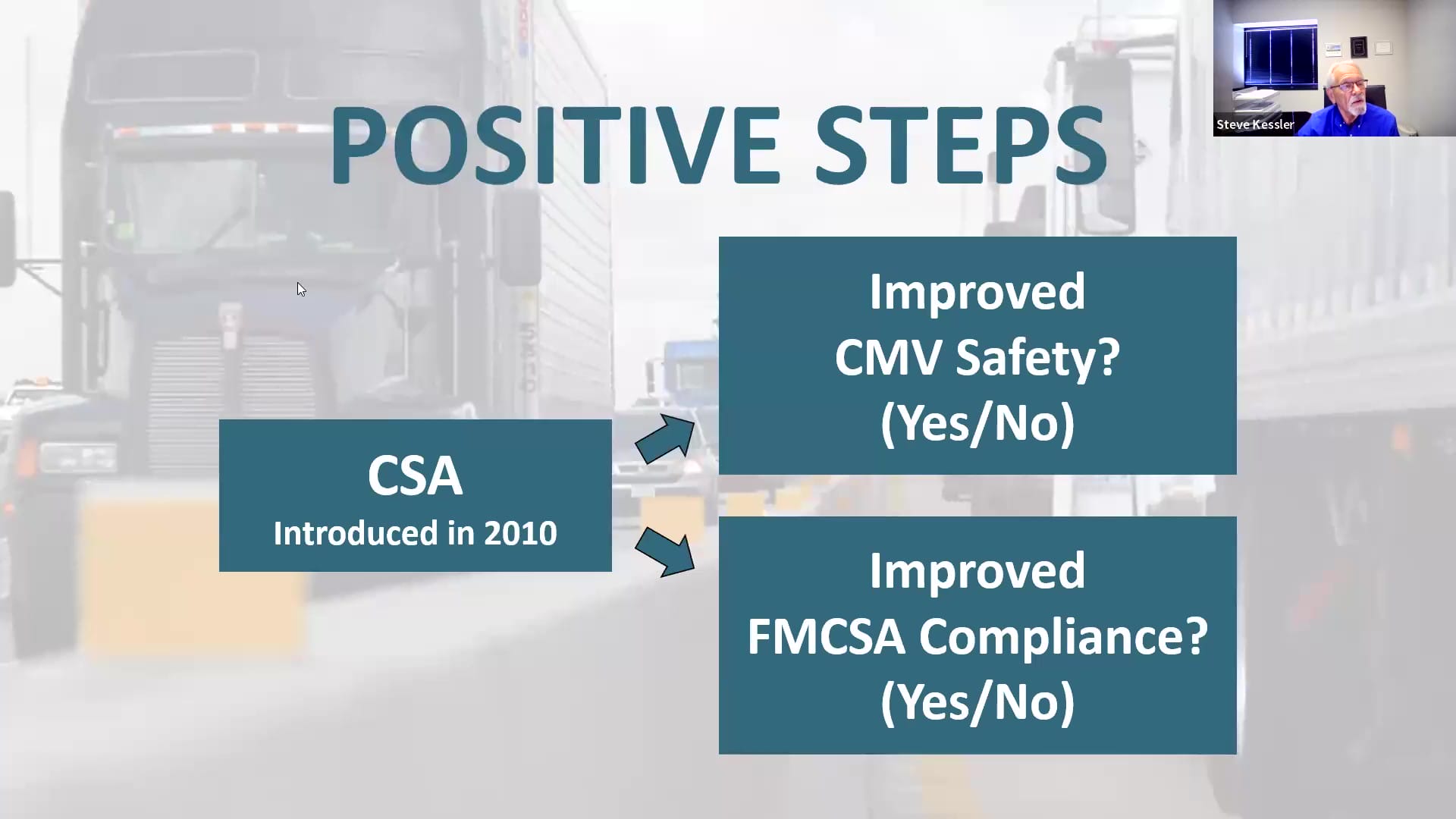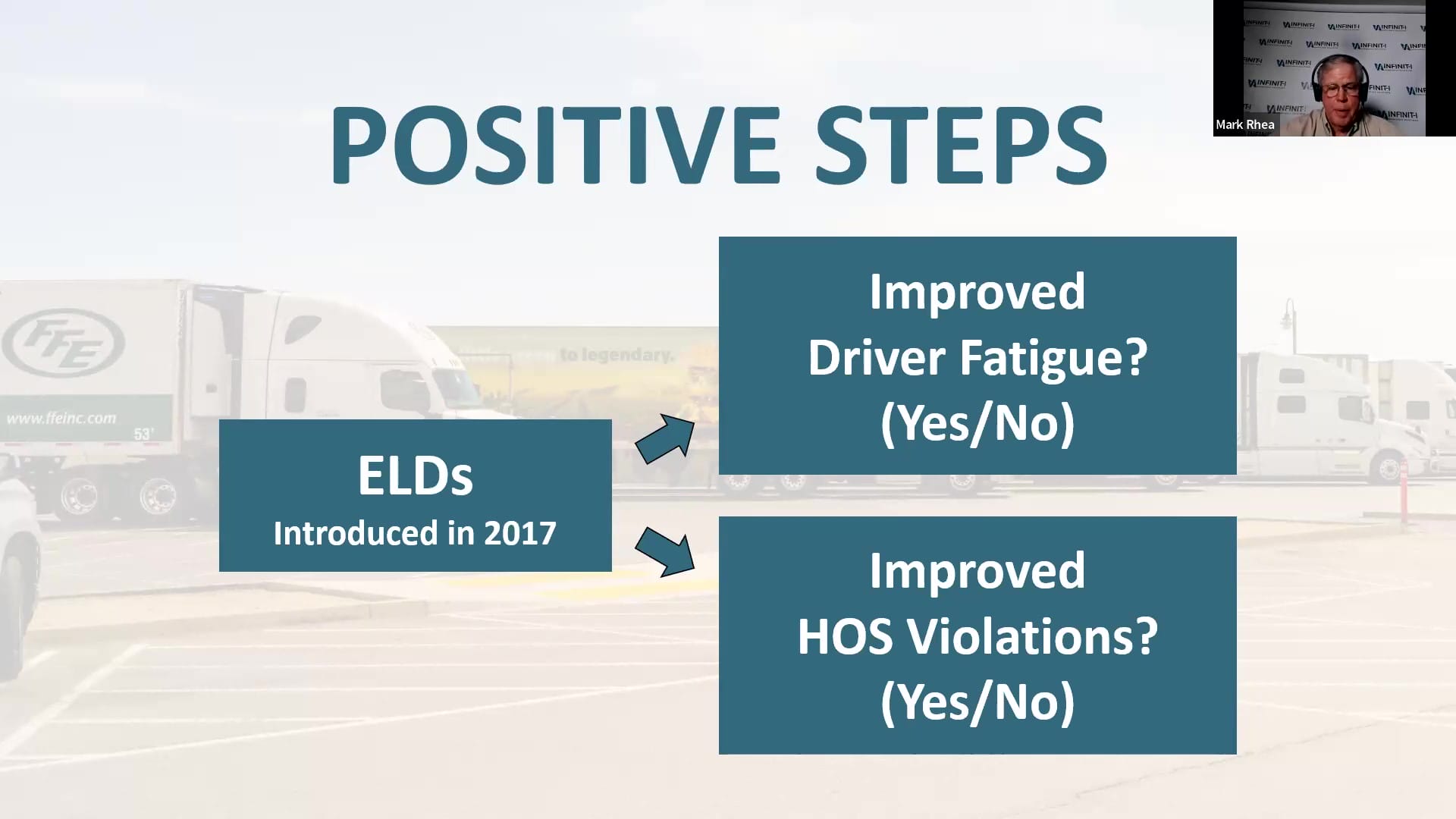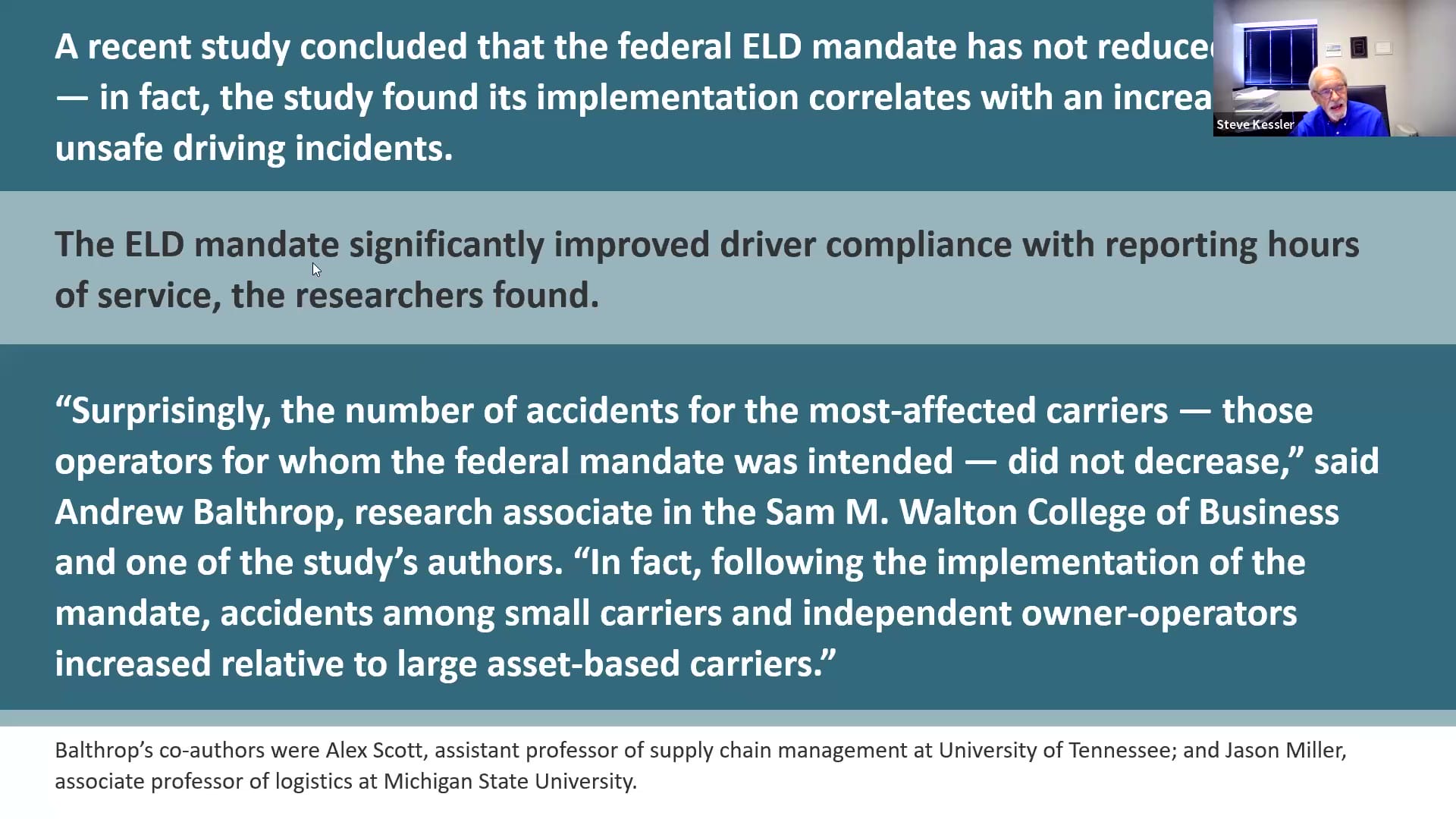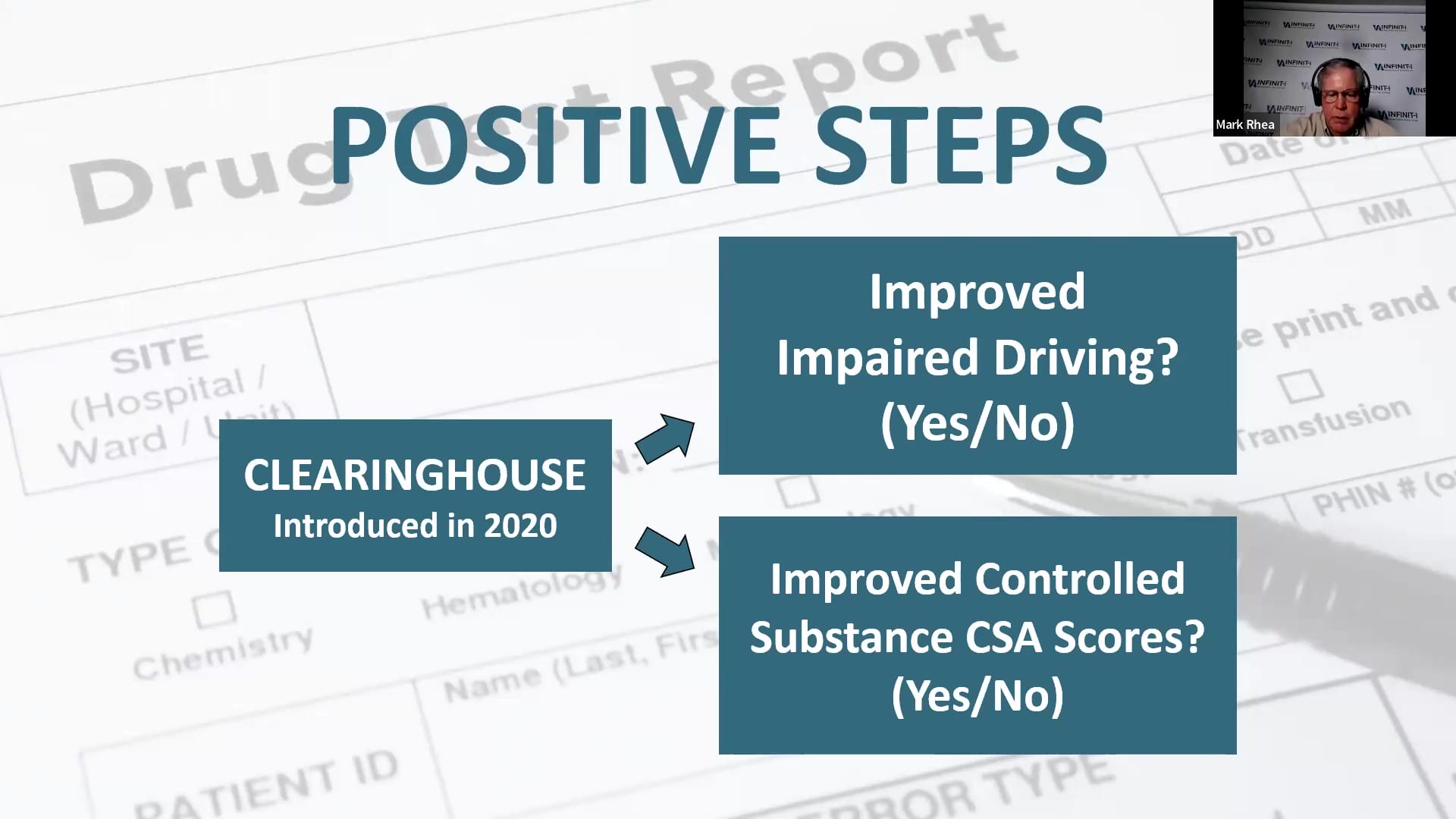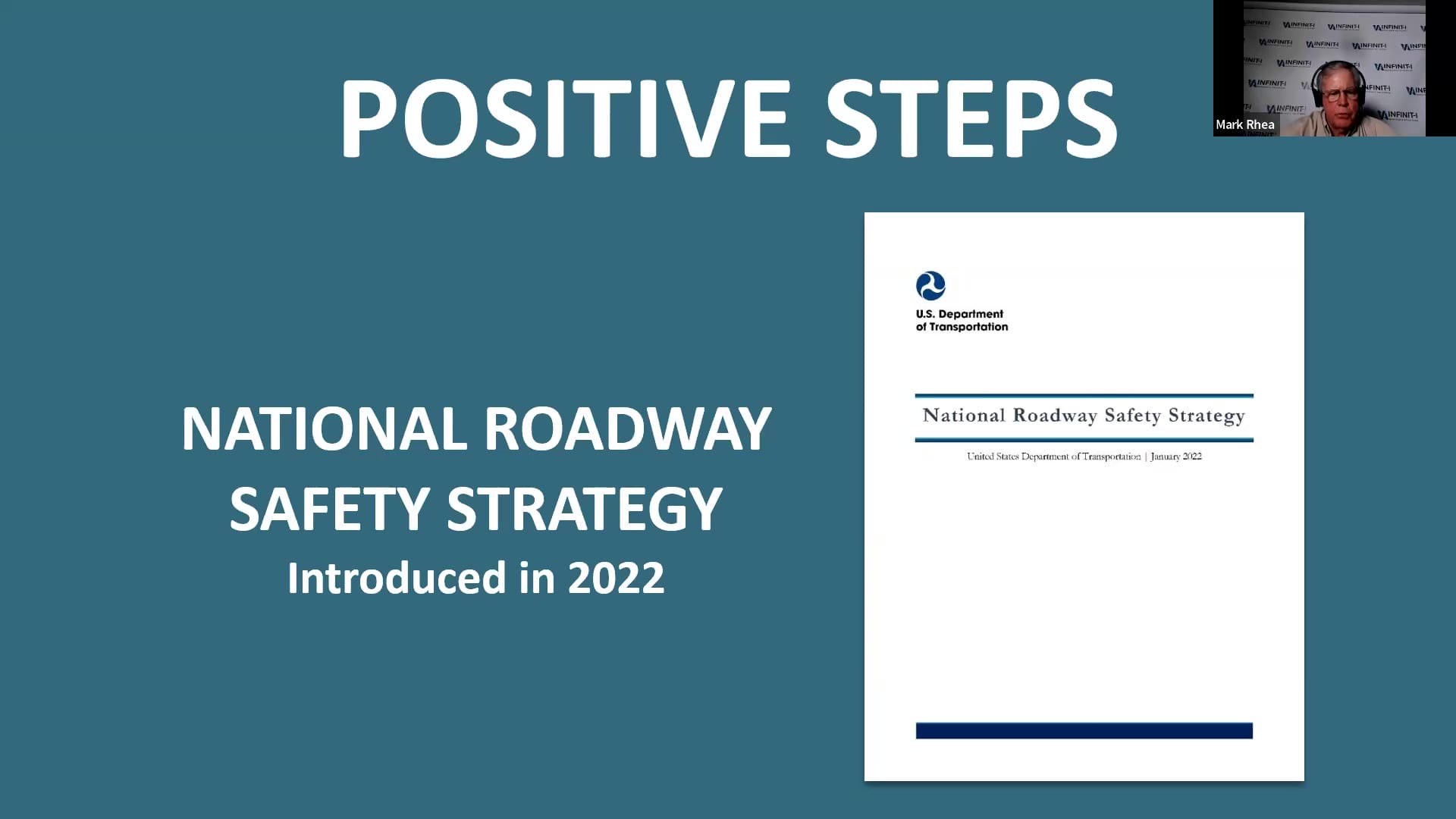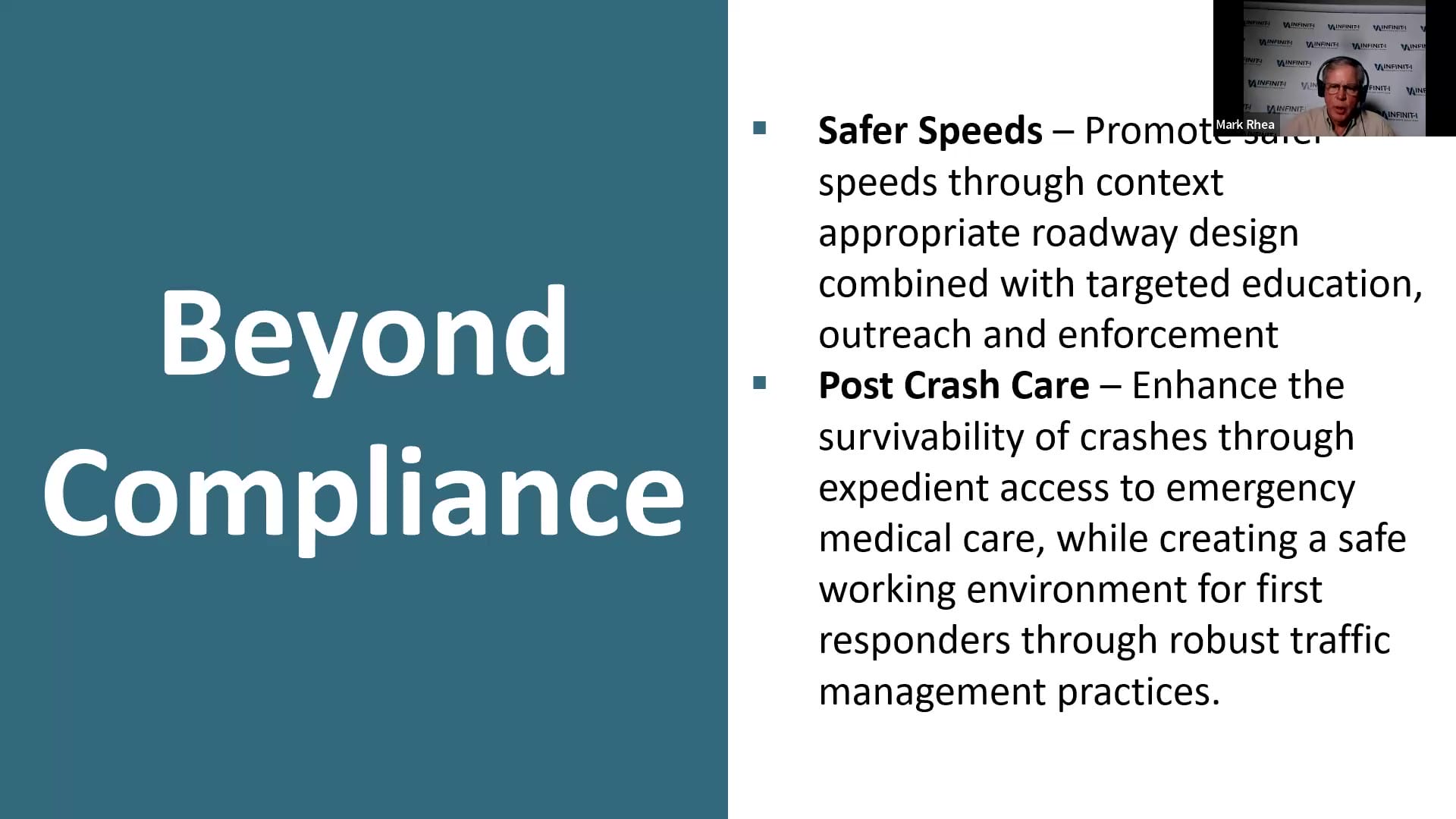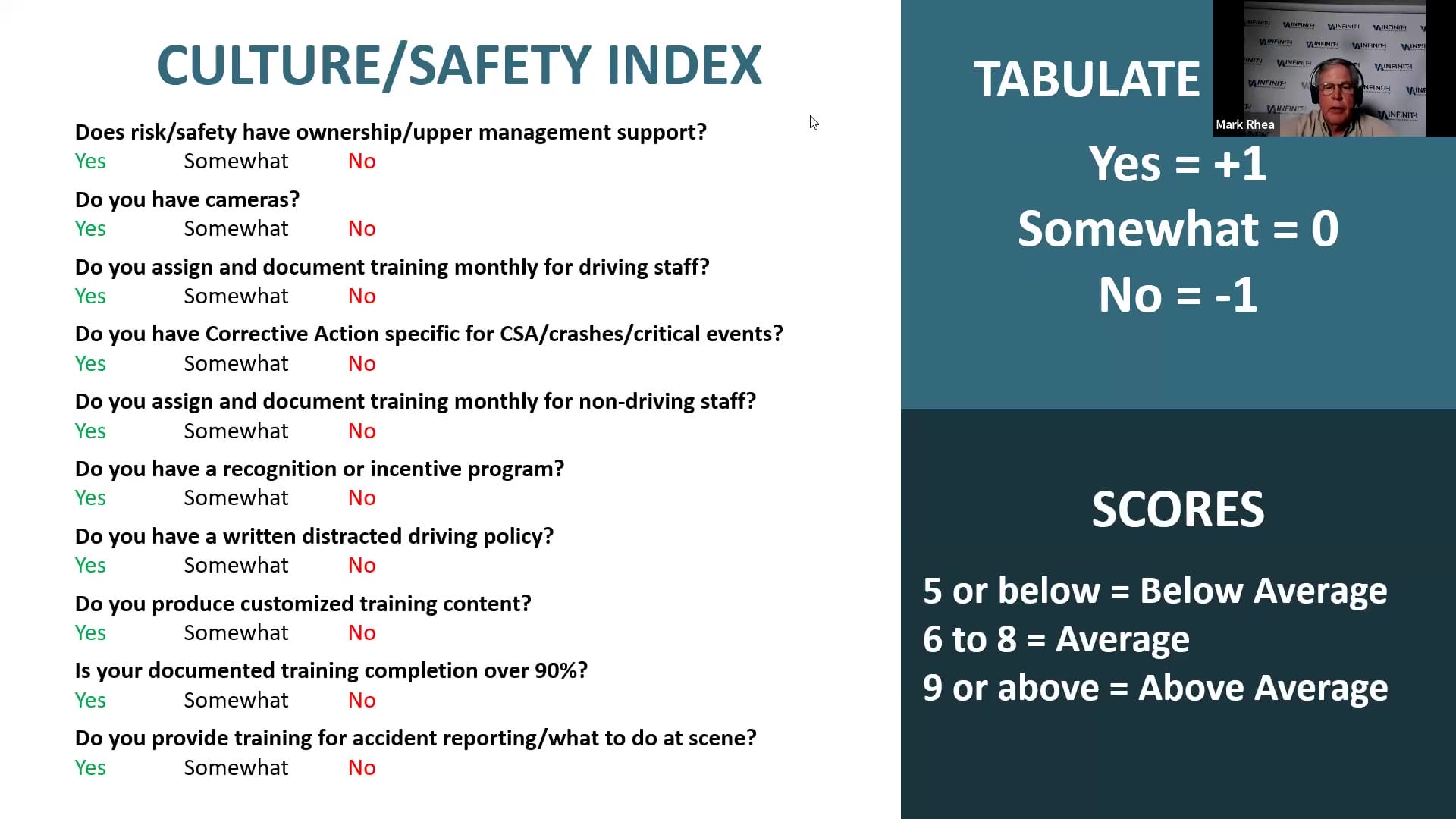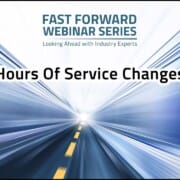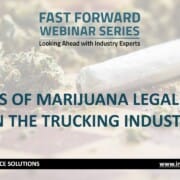Transcription
1
00:00:05.160 –> 00:00:21.279
Steve Kessler: Good afternoon, everybody, and welcome to our Infinit-I Workforce Solutions Fast Forward Webinar series sponsored by Vertical Alliance Group. Thank you all for joining us today. We do appreciate you taking some of your valuable time to join us.
2
00:00:21.370 –> 00:00:41.279
Steve Kessler: my name is Steve Kessler, and I’ll be your host for today’s webinar. some of you may know me if you’ve been to one of our boot camps over the years I’ve been involved in those for at least at least 10 years more like 12 or 13. So I’m pretty sure I’m familiar with some of you folks out there. Thanks for coming.
3
00:00:41.410 –> 00:00:49.260
Steve Kessler: we have a really interesting topic today. Our topic today is, do regulations work
4
00:00:49.340 –> 00:00:53.719
Steve Kessler: compliance versus culture. And we’re talking about safety culture.
5
00:00:53.840 –> 00:01:02.289
Steve Kessler: So we’re going to be discussing the impact of regulations on safety and the importance of a safety culture at your company.
6
00:01:02.790 –> 00:01:17.770
Steve Kessler: So I see a lot of folks logging in some current clients, too. So thanks for coming. if you all don’t mind, just jump on that chat and let us know who you are. where you’re where you located. Maybe the name of your company who you’re with.
7
00:01:17.960 –> 00:01:39.999
Steve Kessler: And having said that, I’d like to introduce you to my co-host and presenter today, Mr. Mark Rhea. most of you have probably, know, Mark, I think he’s been a presenter and hosted on several of our webinars, and is a featured for presenter at our monthly boot camps.
8
00:01:40.000 –> 00:01:49.599
Mark Rhea: welcome, Mark. Hello, Steve! How you doing? I’m doing well, how are you today? Good! Good, I see. I see our friend stands calling in from Levelland, Texas.
9
00:01:51.290 –> 00:01:57.869
Mark Rhea: you know, Stan, I know. Stay in it. it’s a it’s a it’s a beautiful part of the world out there in level land.
10
00:01:59.090 –> 00:02:10.560
Steve Kessler: Yeah, it’s I’m actually I think we should all probably be grateful that we’re doing this indoors on a webinar, because I don’t know where you folks are, but it is hotter and blazes here in Texas today.
11
00:02:10.610 –> 00:02:20.270
Steve Kessler: last I look while ago was above 90, with the humid decks at about 105, and they’re expecting that to be 110 or 12 for the days over with.
12
00:02:20.610 –> 00:02:29.100
Steve Kessler: So Mark, I think we’ve got a really interesting topic to talk about today. Some you and I spoke about many times
13
00:02:29.120 –> 00:02:53.330
Steve Kessler: we talk about this in the boot camps once in a while. so I’m interested to hear some of the comments about you. But before we start that Mark. You know we preach about safety and and doing the best we can to make things run smoothly. But one question I’ve often wondered, do corrections and and training on drivers always work.
14
00:02:55.040 –> 00:02:56.630
Mark Rhea: Not always.
15
00:03:20.210 –> 00:03:26.260
Steve Kessler: Well, Mark, I’m not quite sure I know what to say about that.
16
00:03:26.880 –> 00:03:53.729
Mark Rhea: yeah, I don’t. I don’t, either. I don’t think that’s got much to do with our presentation, but it’s pretty cool to watch. I It’s it’s all somebody was having a really bad day. That’s correct. All the regulations in the world not going to help that. You got to expect the unexpected in our, in our industry so absolutely, absolutely well, Mark, let’s let’s go ahead and dive in here and get started if you’re if you’re all set to go. So I think this is a good opening question.
17
00:03:54.630 –> 00:04:02.410
Mark Rhea: All that’s our highways safer. It’s a very basic question. It’s a very fair question, our our how I say for today
18
00:04:02.780 –> 00:04:11.020
Mark Rhea: than there were 10 years ago, or 5 years ago, or or some of us have been around this industry for a while 30 years ago.
19
00:04:11.250 –> 00:04:21.600
Mark Rhea: with all of the initiatives that have been started. Have we been able to actually improve
20
00:04:21.720 –> 00:04:23.620
Mark Rhea: highway safety
21
00:04:23.720 –> 00:04:30.249
Mark Rhea: highway safety defined as fatalities on, you know, traffic fatalities. So
22
00:04:30.360 –> 00:04:32.700
Mark Rhea: we’ve got a poll question there.
23
00:04:33.420 –> 00:04:37.160
Mark Rhea: and just just give us your answer. What do you think you all think?
24
00:04:41.240 –> 00:04:43.990
Steve Kessler: All right, Mark, we’ll just move along here.
25
00:04:48.310 –> 00:04:53.810
Mark Rhea: Okay, well, I’ll I’ll go and kick off in it. It certainly appears as though
26
00:04:54.120 –> 00:05:01.529
Mark Rhea: our highways are not getting safer. The answers. 81% of the respondents said, Agree with me
27
00:05:01.610 –> 00:05:08.890
Mark Rhea: that the answer is no. but I think you will agree with me that we’ve done a lot of things in an in an attempt to correct.
28
00:05:08.970 –> 00:05:15.429
Mark Rhea: make corrections and get it safe for our secretary. Buttigiege calls rising traffic deaths
29
00:05:15.500 –> 00:05:17.140
Mark Rhea: a crisis.
30
00:05:17.260 –> 00:05:23.809
Mark Rhea: and calls for cooperation among all levels of government industry and adverse security for it to change the course.
31
00:05:24.020 –> 00:05:28.460
Mark Rhea: The crisis on our roads is urgent and preventable.
32
00:05:28.700 –> 00:05:36.780
Mark Rhea: Dr. Stephen Cliff, National Highway Transportation safety deputy administrator. We will redouble
33
00:05:37.280 –> 00:05:46.710
Mark Rhea: our safety efforts, and we need everyone, state and local government safety advocates, automakers, and drivers to join us. All of our lives, depend on it. So
34
00:05:47.020 –> 00:05:50.289
Mark Rhea: if you just want to look at the numbers
35
00:05:51.860 –> 00:06:02.459
Mark Rhea: fatalities are increasing, compounding at a rate of about 10% every year, the fatality rate per 100 million vehicle miles is up 2%.
36
00:06:03.080 –> 00:06:10.540
Mark Rhea: the third category. The third bullet point is the one that I think we should all really take a hard look at is
37
00:06:10.760 –> 00:06:16.789
Mark Rhea: large. Truck crashes are up, and these are fatality related. 17%
38
00:06:16.910 –> 00:06:24.080
Mark Rhea: alcohol, 14% speeding 7.9% unrestrained. No, no seat, belt
39
00:06:25.140 –> 00:06:26.849
Mark Rhea: or or
40
00:06:26.950 –> 00:06:30.819
Mark Rhea: passenger vehicle occupied up 8. So the
41
00:06:31.220 –> 00:06:39.109
Mark Rhea: the snapshot that we can take here is that Secretary buttages is correct. All of the data
42
00:06:39.560 –> 00:06:44.800
Mark Rhea: supports the fact that our highways are not getting cipher.
43
00:06:45.500 –> 00:06:52.859
Mark Rhea: and and that’s kind of sobering not to be, you know, up no pun intended, but that’s got to be sobering
44
00:06:53.140 –> 00:06:59.629
Mark Rhea: for all of the efforts our industry and the participants on this call have put
45
00:07:00.130 –> 00:07:02.750
Mark Rhea: into making our highways safer.
46
00:07:02.850 –> 00:07:05.550
Mark Rhea: and and yet they’re not. They can even cipher.
47
00:07:09.790 –> 00:07:23.159
Mark Rhea: So for the next slide so just to get a little history here. if him Csa is not a an old, 100 year old establishment it was. It was
48
00:07:23.380 –> 00:07:26.939
Mark Rhea: pulled out of the.in January of 2,000
49
00:07:27.210 –> 00:07:33.050
Mark Rhea: So it’s been around 2023 years now, as as a component of
50
00:07:33.090 –> 00:07:35.680
Mark Rhea: the Department of Transportation. The budget
51
00:07:36.100 –> 00:07:40.199
Mark Rhea: for 2010 for the FM. Csa.
52
00:07:40.300 –> 00:07:53.479
Mark Rhea: Was 541 million dollars. The Fmcs. A budget for 2024 is 951 million. plus 430,
53
00:07:54.250 –> 00:07:58.640
Mark Rhea: 463 million dollars in grants. So
54
00:07:58.860 –> 00:08:01.980
Mark Rhea: the Federal Government is investing
55
00:08:02.230 –> 00:08:07.390
Mark Rhea: large dollars in this attempt to try to make our highways safer
56
00:08:07.720 –> 00:08:18.549
Mark Rhea: traffic desk and 2020, 39,000 traffic this in in 2021, 42,000. I will. I will go ahead and reflect back to that. 2010,
57
00:08:19.040 –> 00:08:23.019
Mark Rhea: 541 million dollars budget. The fatality
58
00:08:23.490 –> 00:08:27.799
Mark Rhea: account for for 2,010 was 32,000.
59
00:08:27.990 –> 00:08:39.240
Mark Rhea: So not only are we spending more than twice as much money. We’re losing ground. We’re literally losing ground on
60
00:08:39.690 –> 00:08:45.429
Mark Rhea: highway safety as measured by fatality on our roadways.
61
00:08:45.740 –> 00:08:50.020
Mark Rhea: And again, that’s very I think. Hmm.
62
00:08:50.170 –> 00:08:54.440
Mark Rhea: secretary, right, we have a crisis on hand.
63
00:08:54.710 –> 00:09:00.829
Mark Rhea: So what do we do about it? Or we’re looking back. Let’s look at what we have done about that.
64
00:09:02.200 –> 00:09:04.230
Mark Rhea: So we’ll go the next slide.
65
00:09:04.810 –> 00:09:17.159
Mark Rhea: One of the things we all have been involved in since it was introduced back in 2,010 is the Csa program or the SMS. It, whatever you want to call it, they’re both the same, or one is under the other one. But it’s the.
66
00:09:17.180 –> 00:09:22.070
Mark Rhea: This is Csa scores. It’s it’s threshold. It’s a highway. it’s some
67
00:09:22.110 –> 00:09:29.099
Mark Rhea: roadside inspections that get converted into to numbers that get converted into categories.
68
00:09:29.250 –> 00:09:35.090
Mark Rhea: So the question that that. that. We need to ask ourselves if
69
00:09:35.880 –> 00:09:39.320
Mark Rhea: how a safety has not improved.
70
00:09:39.650 –> 00:09:44.869
Mark Rhea: And we did a lot of work and effort on on
71
00:09:45.580 –> 00:09:47.150
Mark Rhea: C. S. A.
72
00:09:47.750 –> 00:09:52.830
Mark Rhea: Has has Csa worked? Is is it working or not?
73
00:09:52.880 –> 00:09:58.580
Mark Rhea: tough question. It’s a tough question. We we’ve seen some changes. They’ve done some things recently. And
74
00:09:58.680 –> 00:10:05.700
Mark Rhea: was it? you know, it has identified some some unsafe carriers, of course, but
75
00:10:06.820 –> 00:10:18.240
Mark Rhea: if you just look at the overall safety of our highways it, it appears that it has not done a whole lot to improve fatality. Access? The second question is improved.
76
00:10:19.140 –> 00:10:24.900
Mark Rhea: and in a different question, has it improved compliance? Has it improved
77
00:10:25.030 –> 00:10:30.349
Mark Rhea: compliance with Fmc. Regulations out of service of violations and things such as that?
78
00:10:31.320 –> 00:10:44.590
Mark Rhea: and I think the answer we can give to that is yes, it has improved. I like. I’d like, if you can enter your chat. What what is your opinion on these issues? Has Csa
79
00:10:44.910 –> 00:10:57.340
Mark Rhea: a improved commercial vehicle. Safety. as as defined by crashes and wrecks and fatalities and things such as that, and number 2
80
00:10:57.720 –> 00:11:03.939
Mark Rhea: as Csa. Improved compliance, the number of violations that are being issued.
81
00:11:04.870 –> 00:11:09.499
there’s a no in a yes, and I think I would agree with Corey.
82
00:11:09.740 –> 00:11:21.910
Mark Rhea: And and again, this, these are tough questions. So put your answer in there. There, there’s no yet there. I hope we have some disagreement. I normally do have some disagreement on that, because there are some.
83
00:11:21.940 –> 00:11:24.749
Mark Rhea: some very good components of C. S. A.
84
00:11:25.720 –> 00:11:31.680
Steve Kessler: So do you think that you know, Csa has at least
85
00:11:31.880 –> 00:11:40.040
Steve Kessler: provided with a lot of data where we can see frequency, what type of violations are happening.
86
00:11:40.070 –> 00:11:51.919
Steve Kessler: you know, I’d say on a positive, perhaps it’s given us benchmarks that we can look at, and perhaps make it easier to approach those things and
87
00:11:52.040 –> 00:12:01.169
Steve Kessler: and try to make some improvements. Would you say that’s a positive, understand it. It it is that those are differently positives. It’s brought to
88
00:12:01.400 –> 00:12:06.380
Mark Rhea: attention, if you will, to to the you know, the
89
00:12:07.700 –> 00:12:13.159
Mark Rhea: to the problems that are out there to the regulation just brought attention to the problems.
90
00:12:13.440 –> 00:12:24.579
Mark Rhea: It is clearly improved if it from Csa compliance. But the the argument I would make would be to really gain on this on this whole concept of
91
00:12:24.860 –> 00:12:29.219
Mark Rhea: of safety, highway safety. It’s a combination.
92
00:12:29.800 –> 00:12:44.639
Mark Rhea: compliance and culture. It’s not exclusively compliance. It’s not exclusively culture. And we’re going to talk a little bit later in in the presentation about what do you mean by culture? How do you define culture?
93
00:12:45.490 –> 00:12:52.729
Mark Rhea: but I think I think we’ve put most of our emphasis on the compliance issue
94
00:12:52.980 –> 00:13:02.019
Mark Rhea: with the with the hope that the culture will follow, and sometimes it does. And and it it has identified
95
00:13:02.150 –> 00:13:13.860
Mark Rhea: a lot of a lot of gaps out there and and identified what I would call some of the irresponsible carriers that needed to be addressed. So there are definitely some positives but
96
00:13:14.580 –> 00:13:19.639
Mark Rhea: has has it ultimately improved safety? but it’s debatable.
97
00:13:20.730 –> 00:13:32.270
Steve Kessler: Yeah, I think I would thank Mark for for some companies, I would say Csa is probably provide a very positive benefit to them. But, like you said Overall.
98
00:13:32.450 –> 00:13:58.420
Steve Kessler: the, you know, the rate of accidents and fatalities, and that hasn’t hasn’t gotten any better. It’s getting worse. And in that sense, following regulations and doing the best we can to follow all the Csa regulations hasn’t really changed things very much, and and you could make an an argument, a legitimate argument. It’s not the commercial vehicles. It’s all the other guys that are out there which is a very legitimate argument. The the
99
00:13:58.490 –> 00:14:06.229
Mark Rhea: motorcyclers, the the the you know, drunk drivers, the the some of the some of the crazy things that we see out there, but
100
00:14:06.380 –> 00:14:12.340
Mark Rhea: all combined, all in it certainly appears that
101
00:14:12.670 –> 00:14:18.370
Mark Rhea: our, our our fatalities are not going down there. Continue to go up.
102
00:14:21.690 –> 00:14:33.180
Steve Kessler: There’s some comments here, Mark. I don’t know whether you’re seeing these or not, but, Heather is saying they’re safer in that. They’ve ever been. As far as compliance, guidelines, etc.
103
00:14:33.310 –> 00:14:40.299
Steve Kessler: Problem is, we’re relying on safety measures and failing with the decrease of accidents, fatalities, and such.
104
00:14:40.510 –> 00:14:59.059
Steve Kessler: Say, you know. So I I agree with that totally. I mean, we’re we’re better at following the rules. But we’re not. We’re not doing the right things, evidently to increase accidents and fatalities. Right? I think we look. I think I think I think I think I think she is exactly right there, there needs to be
105
00:15:00.070 –> 00:15:08.359
Mark Rhea: more than just following the yes, we are following the regulations better as an industry. but we need to look beyond compliance.
106
00:15:09.380 –> 00:15:12.279
Mark Rhea: So let’s let’s look at the another step.
107
00:15:12.300 –> 00:15:16.869
Mark Rhea: electronic logs. I think everybody on this call will agree
108
00:15:17.030 –> 00:15:39.599
Mark Rhea: that there have been a lot of time, effort and aggravation. in the implementation of an electronic log mandate. and it was clearly designed to improve driver fatigue on the road. So the question for the audience is, have Els electronic logs.
109
00:15:39.920 –> 00:15:42.649
Mark Rhea: improved driver fatigue.
110
00:15:45.570 –> 00:15:53.339
Mark Rhea: yes or no. Go and then type in your chat. But you you type them in. And then the second one is, has it improved
111
00:15:54.010 –> 00:16:10.320
Mark Rhea: hours of service, violations, hours of service, violations as opposed to driver fatigue Elds? I think I think we would all agree that we’ve all invested a lot of time and money on
112
00:16:10.570 –> 00:16:12.669
Mark Rhea: the eld initiative
113
00:16:13.260 –> 00:16:25.420
Mark Rhea: the question is, has it? Has it turned the dial as it turned the dial. So we’ve got a lot of conflicting answers which I was. I was hoping we would.
114
00:16:25.580 –> 00:16:32.099
Mark Rhea: I would. I’ll I’ll give you some some insight from
115
00:16:32.620 –> 00:16:34.610
Mark Rhea: from some of our researchers.
116
00:16:36.420 –> 00:16:41.880
Mark Rhea: We’re getting a lot of responses. No driver tick has not improved. I think it’s part of the overall regulations.
117
00:16:42.060 –> 00:16:50.510
Mark Rhea: I I will say. Elds were certainly presented to our industry as a solution.
118
00:16:50.590 –> 00:16:53.130
Mark Rhea: to the driver. Fatigue issue.
119
00:16:53.320 –> 00:16:59.040
Mark Rhea: let’s see if it works. Let’s let’s go to the next slide, if you would please. Sure.
120
00:17:00.690 –> 00:17:02.480
Mark Rhea: So a recent study
121
00:17:02.880 –> 00:17:11.369
Mark Rhea: concluded that the Federal Ld mandate has not reduced accents. In fact, the study found its implementation correlates
122
00:17:11.720 –> 00:17:18.729
Mark Rhea: with an increase in unsafe driving incidents, specifically speeding
123
00:17:18.890 –> 00:17:23.220
Mark Rhea: theld mandate significantly improved
124
00:17:23.470 –> 00:17:28.929
Mark Rhea: driver compliance and report with reporting hours of service. The researchers found
125
00:17:28.990 –> 00:17:41.040
Mark Rhea: surprisingly the number of actions for most affected carriers. Those operators with whom the Federal mandate was intended did not decrease, said Andrew Balthrop Research Associate, Sam Walton College of Business.
126
00:17:41.220 –> 00:17:48.359
Mark Rhea: and one of the studies offers. In fact, following the implementation of the mandate access among small carriers, independent owner operators increased
127
00:17:48.490 –> 00:17:52.190
Mark Rhea: relative to large asset based carriers. Wow!
128
00:17:52.250 –> 00:17:55.790
Mark Rhea: That’s a and and this was done. I’ve got the
129
00:17:55.800 –> 00:18:06.829
Mark Rhea: The other Supply Chain Management University of Tennessee, Jason Miller, associate logistics Michigan State University. You know, people that should know what they’re They have done their research and
130
00:18:07.530 –> 00:18:11.180
Mark Rhea: have found that
131
00:18:11.830 –> 00:18:19.109
Mark Rhea: Maybe it hasn’t worked as well as they would have liked it to. It has clearly had a benefit in violations. It’s clearly had a
132
00:18:19.120 –> 00:18:23.300
Mark Rhea: a benefit in in, in like, I said, highlighting
133
00:18:23.420 –> 00:18:26.779
Mark Rhea: the of service rules and regulations.
134
00:18:28.110 –> 00:18:41.350
Mark Rhea: But the research does not show that it has decreased or reduced accidents. So that that’s kind of another sobering thought. So we talked about Csa. We’ve talked about
135
00:18:41.610 –> 00:18:44.630
Mark Rhea: the eld mandate.
136
00:18:44.930 –> 00:18:56.970
Mark Rhea: we’ve got some conflicting answers. Some people say it has worked, and you know. And and you’re certainly entitled, everyone is entitled to their opinion. And I want your opinion because we need industry input, into this
137
00:18:57.090 –> 00:19:02.460
Mark Rhea: crisis that we’re that we’re facing with these fatality accidents in this unsafe.
138
00:19:02.530 –> 00:19:14.429
Mark Rhea: What I I do think we saw from all the answers is the vast majority do not think our highways are safer today or getting safer. So we gotta do something. No one.
139
00:19:15.510 –> 00:19:27.220
Steve Kessler: Yeah, I would say. So, Mark, I was interested in the comment that Tim made here that I was driving in the old days with paper logs, and he’s indicating the a yield. These are definitely better today
140
00:19:27.270 –> 00:19:37.759
Steve Kessler: for that. And I I think you know, after the initial push back about electronic logs that you know the drivers today sort of favorite, it takes a lot of the
141
00:19:37.780 –> 00:19:51.679
Steve Kessler: time and effort out of it. It’s a simpler way to keep track of their logs and all that. So I’d say, from that standpoint there’s probably a benefit there. But again, we’re talking about. Do any of these things
142
00:19:51.760 –> 00:20:02.320
Steve Kessler: help with safety on the highway, and decrease accidents and fatalities, and all that. So and and and again, the the the point of of our discussion today is
143
00:20:02.810 –> 00:20:26.289
Mark Rhea: looking at a combination of compliance with the rules and culture within your own organization. What, what is my culture, what? What? What are the drivers feel from my organization when they’re out there on the highways. So what right Let’s let’s go to the next one there. The clearing house. Everybody’s familiar with the drug and alcohol clearing house
144
00:20:26.440 –> 00:20:28.989
Mark Rhea: introduced in 2,020.
145
00:20:29.060 –> 00:20:40.269
Mark Rhea: I got to kind of a rough start, but it it it’s up and going. It’s a very good database. It gives very good information on, on, on, on posture drug screen. So the question is.
146
00:20:40.800 –> 00:20:58.219
Mark Rhea: and and I think we when we were looking at those increases Steve, we saw a 14% increase in in impaired alcohol and impaired driving fatalities. So it’s it’s a real issue out. There has has a clearinghouse, improved driver
147
00:20:59.980 –> 00:21:03.199
Mark Rhea: improved, impaired driving, and if you don’t mind, just
148
00:21:03.490 –> 00:21:06.400
Mark Rhea: give us your opinion, yes or no.
149
00:21:06.770 –> 00:21:16.800
Mark Rhea: And again, the the right it would improve. Impaired driving is to take some drivers off the road that that they are showing
150
00:21:16.820 –> 00:21:32.100
Mark Rhea: that they can’t stay off of. You know, illegal drugs. The second question is improved, has has the Clearinghouse improved control of the Csa scores as has it, improved? Cs, a. Scores
151
00:21:32.600 –> 00:21:36.509
Mark Rhea: has it? Has it
152
00:21:37.280 –> 00:21:52.220
Mark Rhea: brought attention to the so the substance can problems and realities that are out there. So tough questions, very tough questions to a very difficult issue of impaired driving.
153
00:21:52.440 –> 00:21:58.570
Mark Rhea: And we’re getting yeses. And yes, we’re getting nose and nose. We’re getting a little bit of everything out there, which is
154
00:21:58.590 –> 00:22:12.550
Mark Rhea: what I’m what I my my intention was to just to get people to think about this, have all of these things ultimately improved? Driver, safety, with all of the money
155
00:22:12.960 –> 00:22:18.109
Mark Rhea: and efforts that have gone to to to to making that improvement.
156
00:22:19.270 –> 00:22:24.139
Steve Kessler: You know, Mark, one of the things that I’ve I about. You know the clearing house.
157
00:22:24.210 –> 00:22:33.619
Steve Kessler: you know, they’re they’re finding a very large number of drivers that, you know, have a
158
00:22:33.630 –> 00:22:40.419
Steve Kessler: positive test, or they didn’t take one. They refused to take it. So they have a positive
159
00:22:40.520 –> 00:22:51.070
Steve Kessler: yeah. A large number of drivers, literally tens of thousands of drivers don’t ever go into the program to try to get themselves back to driving again.
160
00:22:51.270 –> 00:22:53.380
Steve Kessler: And I I think
161
00:22:53.460 –> 00:23:07.919
Steve Kessler: in some sense, maybe it’s taking some of these drivers that were a problem with impairment out of the pool completely. It doesn’t help with our struggle to find drivers, because it’s reduced to pool some. But
162
00:23:07.970 –> 00:23:37.459
Steve Kessler: you know, I think there are a lot of issues around the clearing house. When we talk about, there’s an awful lot of discussion today, mark about marijuana which is legalized in so many states. And how are we going to figure out how to deal with that? So I know that’s really not the topic conversation here, but you know, I think there’s definitely some benefits to the clearing house. But you know, bottom line is, I don’t think it’s had that big of an impact on impaired driving.
163
00:23:37.470 –> 00:23:40.329
Steve Kessler: No, it hasn’t. The number said as
164
00:23:40.400 –> 00:23:54.990
Mark Rhea: yeah. And and again, it it clearly has taken people all through that, don’t. They don’t need to be behind the wheel of a commercial vehicle, and and we can all agree that that’s an improvement if we can take one off of the road that doesn’t belong there.
165
00:23:55.180 –> 00:24:07.019
Steve Kessler: But I think there’s a great comment from Rick. those are people they don’t want driving, anyway. You know the ones that don’t. don’t enter into the program. So
166
00:24:07.180 –> 00:24:22.539
Mark Rhea: another one said the people that could hide it before can’t hide it any longer. And and I was I I was one of the that was around before they started doing you know the the random drug screens and the pre-employment drug screens. And I can tell you.
167
00:24:23.010 –> 00:24:31.869
Mark Rhea: the random drug streams improved, impaired driving. I’m a hundred percent terror that I I think Clearinghouse as in. I don’t think it solved the problem.
168
00:24:31.940 –> 00:24:38.840
Mark Rhea: But I think it’s improved the problem. I think that’s that’s that’s a that’s a legitimate comments. So
169
00:24:39.440 –> 00:24:45.159
Mark Rhea: you know, how how do you take it from? Improved to to you know.
170
00:24:45.740 –> 00:24:55.539
Steve Kessler: taken care of that. That’s a tough. It’s a tough one. So yeah, but yeah, I think it’s obviously a valuable tool. And then the less. And
171
00:24:55.590 –> 00:24:57.900
Steve Kessler: hopefully, at some point.
172
00:24:57.970 –> 00:25:14.500
Steve Kessler: you know, it does start to show some positive on what’s happening out there on the road, and I I surely don’t want to get off off topic. But anybody that’s in there. There is an Atr recent publication on the Marijuana issue. I’ll encourage everyone to re that that’s
173
00:25:14.590 –> 00:25:36.840
Mark Rhea: involved in operating commercial vehicles to read that and get involved in that. There’s there’s no easy solution to that. And it’s a it’s a reality that’s out there. So so anyhow, we we we we started this discussion, Steve saying, our our our highways safer. And the respondents was well over 80%. Nope, no, we’re not. We’re not getting any safer.
174
00:25:37.100 –> 00:25:41.670
Mark Rhea: And I, just, we just quickly reviewed 3
175
00:25:42.060 –> 00:25:48.580
Mark Rhea: steps that have been compliance issues that the Fmcsa. Has initiated the Clearing House
176
00:25:48.650 –> 00:26:02.530
Mark Rhea: electronic logs and the Csa program to improve that. But ultimately the combination of those and other issues that are out there have not have not turned the dial.
177
00:26:03.340 –> 00:26:14.190
Mark Rhea: so the the point. Well, let’s just the next. Once you go to the next slide, if you would please. Here’s what’s here’s what’s out there. Here’s here’s what has been
178
00:26:14.450 –> 00:26:19.109
Mark Rhea: introduced in 2020 to the National Roadway Safety strategy.
179
00:26:19.480 –> 00:26:24.630
Mark Rhea: And I’ve read it, and it has a lot of a lot of
180
00:26:24.920 –> 00:26:28.769
Mark Rhea: concepts and strategies. But it it it really didn’t
181
00:26:29.320 –> 00:26:37.720
Mark Rhea: light my hair on fire on. This is exactly what can be done to improve highway safety for our commercial vehicles.
182
00:26:37.960 –> 00:26:44.910
Mark Rhea: if you’ll go to the next slide here, there’s 6 different components, safer people
183
00:26:45.350 –> 00:26:50.120
Mark Rhea: that encourages safe, responsible behavior research measurements.
184
00:26:51.250 –> 00:27:04.739
Mark Rhea: safer roads, you know, designing the roadways to to mitigate human mistakes. I encourage safer behavior through facilitating safe travel by the vulnerable users say, for vehicles
185
00:27:05.050 –> 00:27:12.989
Mark Rhea: expand vehicle systems and features to prevent crashes and minimize impact on documents and non documents. Technology. Basically.
186
00:27:13.570 –> 00:27:18.049
Mark Rhea: there’s 2 more safer speeds
187
00:27:18.420 –> 00:27:31.359
Mark Rhea: speed limiters specifically, which is a hot topic, promotes safer speeds through context of appropriate roadway design, target education. And I think target education is
188
00:27:32.100 –> 00:27:34.490
Mark Rhea: It is a very legitimate
189
00:27:35.160 –> 00:27:38.210
Mark Rhea: Initiative is because
190
00:27:38.800 –> 00:27:41.509
Mark Rhea: what we have seen when, since we’ve started
191
00:27:41.620 –> 00:27:48.830
Mark Rhea: in the world of of of cameras is unbelievable some of the things that the that the
192
00:27:48.870 –> 00:27:56.209
Mark Rhea: non- commercial commercial vehicles are certainly capable, doing some strange things, as we saw at the at initial, that initial.
193
00:27:56.580 –> 00:28:13.359
Mark Rhea: But, boy, some of the other things that we are catching on camera from from motorcycles and cars is certainly tells me that we need to educate the motoring public on blind spots, and the simple fact that trucks are bigger than cars. And
194
00:28:13.610 –> 00:28:18.859
Mark Rhea: That that that certainly is. Come in post crash. Care
195
00:28:19.020 –> 00:28:31.400
Mark Rhea: enhance survival. I think that’s a very legitimate there, there’s a lot of things that can be done at the scene immediately after scene. that can improve
196
00:28:31.480 –> 00:28:36.650
Mark Rhea: improve things. So those are the 5 components of the
197
00:28:38.160 –> 00:28:45.729
Mark Rhea: the the report that the Us. Dot put out in response to this this crisis that we’re seeing.
198
00:28:46.150 –> 00:28:52.100
Steve Kessler: you know, Mark, one of the things that I have not read this document. But I get the sense looking at these bullets that
199
00:28:52.270 –> 00:29:05.430
Steve Kessler: you know a fair amount of this is is not necessarily geared towards commercial vehicles. A lot of these things. You know how the highways are built, and post crash, medical care and different things like that
200
00:29:05.450 –> 00:29:10.269
Steve Kessler: A lot of that is is kind of kind of aimed at the motoring public
201
00:29:10.480 –> 00:29:22.140
Steve Kessler: which I think, is a great thing, because we know statistically that the majority of more, you know. car crashes and truck crashes are not the trucks fault.
202
00:29:22.230 –> 00:29:28.460
Mark Rhea: You get some varying numbers there, but most people will say 70 or 80% of the time.
203
00:29:28.700 –> 00:29:31.090
Steve Kessler: It’s the it’s the car’s fault.
204
00:29:31.350 –> 00:29:47.019
Steve Kessler: And you know. I think that’s one thing that could help a lot out there on the roads is to educate the motoring public a little bit more and help them learn to understand how to drive around these these big trucks.
205
00:29:47.150 –> 00:29:56.249
Steve Kessler: In fact, we we have some content in our catalog about the 7 dangerous things that the motoring public does around big trucks.
206
00:29:56.310 –> 00:30:11.849
Steve Kessler: and it was kind of designed to help drivers understand what those 4 wheelers will do. But I think that’s the kind of training that ought to be part of getting a driver’s license in this country, and I’m hoping at some point some of that happens.
207
00:30:12.090 –> 00:30:26.140
Mark Rhea: Yes, Rick, Rick put in a very good comment. Put the phone down and pay attention to driving. That’s that’s 100% correct. So one of the things I want to. I I’m going to ask the audience before we get to the next slide is we? We talked about
208
00:30:26.460 –> 00:30:29.620
Mark Rhea: compliance, compliance with regulations.
209
00:30:29.750 –> 00:30:35.589
Mark Rhea: And then we also talked about culture. What is the culture of your organization at? Do you
210
00:30:35.610 –> 00:30:37.380
Mark Rhea: live, breathe, and sleep?
211
00:30:37.450 –> 00:30:43.240
Mark Rhea: A culture? So the question, I would ask the audience, what’s more important
212
00:30:43.370 –> 00:30:45.899
Mark Rhea: to to making our highways safer
213
00:30:46.290 –> 00:30:53.350
Mark Rhea: compliance with regulations or a culture of of safety and responsible of responsibility.
214
00:30:53.600 –> 00:30:57.200
Mark Rhea: just just curious to see what what people, how people would answer that
215
00:31:00.150 –> 00:31:01.180
Mark Rhea: culture.
216
00:31:01.970 –> 00:31:06.539
Mark Rhea: culture, culture, culture, culture. Wow. We got lots of cultures.
217
00:31:11.010 –> 00:31:21.060
Mark Rhea: There’s one that says, culture leads to compliance, a lot of culture. So let’s talk a little bit about this culture. It’s it’s it’s not as easy to.
218
00:31:21.230 –> 00:31:27.169
Mark Rhea: There’s our. There are limited number of metrics that you can use to assess
219
00:31:27.350 –> 00:31:35.590
Mark Rhea: culture. It’s a difficult abstract thing. It’s it’s kind of mushy. If you know what I mean. It’s not like
220
00:31:35.910 –> 00:31:42.000
Mark Rhea: the hedge seat, belt on or off, and things that you can measure like we look at. It’s Csa. So let’s go to the next slide.
221
00:31:42.420 –> 00:31:49.140
Mark Rhea: Tim, I I agree with you. It’s it’s a combination of of culture
222
00:31:49.430 –> 00:31:53.530
Mark Rhea: and compliance, but it’s not exclusively
223
00:31:53.930 –> 00:32:04.570
Mark Rhea: culture. And it’s not exclusively compliance. So let’s take a little die, deep dive into what? How? What does safety culture look like?
224
00:32:04.940 –> 00:32:14.860
Mark Rhea: And I think we have actually a culture index for everyone to take. If I’m not mistaken there it is. Okay. So
225
00:32:15.280 –> 00:32:21.830
Mark Rhea: you get to participate. You you that are listening in that have been listening to this, and we’ve talked about
226
00:32:22.110 –> 00:32:32.559
Mark Rhea: the highway is not getting safer. We talked about Els. We talked about the clearing house. We’ve talked about Csa. Here’s here’s an index that I’d like you to answer
227
00:32:33.080 –> 00:32:38.649
Mark Rhea: 10 questions and just grade yourself. Number that. That is a culture index number one.
228
00:32:38.950 –> 00:33:07.389
Steve Kessler: Hey, Mark, just before you start. I just want to let everybody know that the little quiz on your screen. You can scroll down to get there, or 10 questions here altogether. So I just want to make sure everybody knows you can scroll through that. Okay, scroll down it. It’s not a next page. It’s just to scroll down, and if you want to keep your own score, I think if you just do your own telling as we go along, you’ll you’ll end up with your score, so so to score all into, to to keep your score? A. Yes, is a one.
229
00:33:07.520 –> 00:33:14.900
Mark Rhea: a somewhat is a 0 and a no is a negative one. So question number one, does your risk
230
00:33:15.140 –> 00:33:19.580
Mark Rhea: and safety have ownership and upper management support?
231
00:33:20.630 –> 00:33:32.860
Mark Rhea: Either it’s either a yes no, or it depends on depends on what the revenue was this month, you know. we. We understand that. So just give us give it your honest answer. Yes, no, or some. What
232
00:33:33.540 –> 00:33:38.739
Mark Rhea: question? 2, do you have cameras? I saw one of the chat mentioned cameras.
233
00:33:38.870 –> 00:33:49.680
Mark Rhea: the forward facing and sides. clearly, a cultural thing that improves the the determination of what happened out there.
234
00:33:49.850 –> 00:34:07.000
Mark Rhea: Do you have cameras? Yes, no, or you know our new ones do, or the some of them do. Some of them don’t, or we’ve got them, but they don’t work, and whatever that would be, a some what answer? But yes, we we have them on all of our trucks or no, we don’t have any cameras.
235
00:34:07.400 –> 00:34:13.799
Mark Rhea: Item number 3. Question number 3. Do you have? Do you assign and document training
236
00:34:14.370 –> 00:34:30.799
Mark Rhea: now, and underline the word document. Because I get involved a lot of lawsuits, and in and talking about training, talking about safety doesn’t get you very far in the courtroom these days. It’s not a very you’ve got to be able to assign and document
237
00:34:31.219 –> 00:34:38.449
Mark Rhea: training monthly for driving staff right now. Obviously, lot of construction going on out there. If you’re not. If you don’t have
238
00:34:38.830 –> 00:34:41.870
Mark Rhea: training going out to your drivers on
239
00:34:42.429 –> 00:34:49.440
Mark Rhea: construction zones as hazards, tire pressures, things like that. That’s either. Yes, we do.
240
00:34:50.120 –> 00:35:01.679
Mark Rhea: Sometimes we do it in the in a couple of times a month, or we are a year. or or we do it, but we don’t document it, and if you scroll down for me, Steve,
241
00:35:01.720 –> 00:35:03.699
Mark Rhea: or I can scroll myself down.
242
00:35:06.010 –> 00:35:21.209
Mark Rhea: Yes, no, or somewhat question 4. Do you have corrective action specific for Csa crash or a critical event? Csa, violation, crash, critical van driver driver.
243
00:35:21.530 –> 00:35:32.699
Mark Rhea: is involved in a you know hard break. Do you do something about it? He gets put out of service because of an airline. Do you do something about? Is there some specific corrective action
244
00:35:32.910 –> 00:35:38.699
Mark Rhea: that clearly shows you as a as a company. Your culture says we don’t
245
00:35:38.820 –> 00:35:42.460
Mark Rhea: approve of Csa violations, crashes.
246
00:35:42.640 –> 00:35:44.980
Mark Rhea: and and critical events.
247
00:35:47.110 –> 00:35:54.760
Mark Rhea: question 5. Do you assign and document monthly for non driving staff?
248
00:35:55.360 –> 00:36:04.240
Mark Rhea: This is clearly a cultural question. Does your does your a payroll department understand hours of service? Does your
249
00:36:04.270 –> 00:36:09.590
Mark Rhea: mechanics understand? pre-trip requirements for for
250
00:36:09.720 –> 00:36:15.280
Mark Rhea: entire pressures? you’re a trucking organization. You’ve got a motor carrier number.
251
00:36:15.350 –> 00:36:23.569
Mark Rhea: I think it’s important that everybody in your under in your organization understands and gets training on
252
00:36:23.960 –> 00:36:30.239
Mark Rhea: your industry, what? What’s safe and what’s not safe? Yes, no, or some what.
253
00:36:31.590 –> 00:36:44.120
Mark Rhea: And and for the record on the Atom 5. I’ve seen that you very effectively in court when you’re able to provide that, not only do you train your drivers, you, you you you train your non driving staff.
254
00:36:44.290 –> 00:37:05.170
Steve Kessler: it’s very effective. Okay, Mark. you know. One thing I might add to that is, you know, we’ve actually got some content that that might be great for a lot of your non driving staff in the company. One of the main ones that I see use quite a bit is some content about defensive driving for passenger vehicles.
255
00:37:05.170 –> 00:37:15.239
Steve Kessler: you know. If you want to show that your company focused on safety it would go a long way to, so that you train every single person in your company about defensive driving
256
00:37:15.460 –> 00:37:31.720
Steve Kessler: or about utilizing a cell phone while you’re driving. Those are things that create accidents on the road, and certainly, would show from somebody looking in from the outside. Well, this company is really focused on safety, because.
257
00:37:31.720 –> 00:37:46.040
Steve Kessler: you know, they’re training every single person in their company how to be safer on the road and but you know, certainly we don’t want our own company, people being the calls of accidents with a big truck out there on the highway.
258
00:37:46.830 –> 00:37:56.999
Mark Rhea: But but you would agree. The Fmca does not require training for non-dri, this. These are these are cultural things that they. They put you beyond
259
00:37:57.370 –> 00:38:05.549
Mark Rhea: beyond compliance. And into this favorable culture thing that we’ve been talking about? Number item 6. Do you have a recognition?
260
00:38:05.720 –> 00:38:13.809
Mark Rhea: Our incentive program? Do you give a recognition to the drivers that are doing a good job, and and and and sent them for that. Yes, no, or some. What?
261
00:38:14.640 –> 00:38:31.670
Mark Rhea: Question? Number 7. Do you have a written, distracted driving policy? I don’t think anybody would disagree. How important how big an issue distracted driving is, not only for the commercial vehicles, but the commercial vehicles to make the acknowledgment that
262
00:38:31.740 –> 00:38:36.530
Mark Rhea: everybody around me is being distracted, and I’ve got to look out for them. So
263
00:38:36.550 –> 00:38:44.860
Mark Rhea: And that’s not limited to cell phones. That’s a distracted driving to you as an or as as an entity, a company.
264
00:38:45.220 –> 00:38:58.069
Mark Rhea: have a policy that says, this is what we do. The number 8. Do you produce customized training content. I know a lot of people on this call have.
265
00:38:58.610 –> 00:39:03.250
Mark Rhea: We’ve got car hollers. We’ve got oil field. We’ve got
266
00:39:03.410 –> 00:39:17.069
Mark Rhea: a little bit of everything that’s got very unique things in, have you been able to produce customized training? It clearly shows your culture is, is, is is favorable. Number 9
267
00:39:17.680 –> 00:39:27.539
Mark Rhea: is your documented training completion over 90. It’s it’s one thing to say we do training, we assign training.
268
00:39:27.630 –> 00:39:38.040
Mark Rhea: But do you, as an organization, mandate it and and actually keep up with the completion rates I saw this entered in a
269
00:39:38.650 –> 00:39:46.459
Mark Rhea: in a courtroom one time, where the completion rate for training was 26, and it did not help this client at all. So
270
00:39:46.590 –> 00:39:51.100
Mark Rhea: and number 10 last question, do you provide
271
00:39:51.580 –> 00:39:55.550
Mark Rhea: training for accident reporting, and what to do at the scene of an accident
272
00:39:55.910 –> 00:40:01.569
Mark Rhea: very critical. What do you do? And it was one of the topics in in the
273
00:40:01.670 –> 00:40:08.559
Mark Rhea: and the safer roads publication that came out. do you provide? Do you help your driver
274
00:40:09.880 –> 00:40:22.360
Mark Rhea: on what to do at the scene of an accident, and what not to do at the scene of an accident and how to report it. And and just just the whole reporting thing. I hear this from the insurance companies over and over
275
00:40:22.490 –> 00:40:32.819
Mark Rhea: the problems that they experience with with carriers that have little or no training for the drivers on accent reporting, what do it? So so that’s 10 questions.
276
00:40:33.260 –> 00:40:39.789
Mark Rhea: 10 questions hopefully. Everybody answered them honestly, and you got a score
277
00:40:39.860 –> 00:40:51.629
Mark Rhea: you got a score. Let me. if you want to tell us your score. Why don’t you put it in chat if you don’t? That’s all right, too. I understand that. But,
278
00:40:52.160 –> 00:41:05.489
Mark Rhea: It’s very simple to tabulate. There’s a 5 I’ve seen. I’ve seen scores as low as minus 8, and I’ve seen seen scores as as as as as much as 5. There’s a 9.
279
00:41:05.600 –> 00:41:11.700
Mark Rhea: if you’re in the 9, you’re you’re doing a lot of favorable things for your culture.
280
00:41:11.920 –> 00:41:19.909
Mark Rhea: if you’re in that 5 and below range, you might, you might go back and look and see if there’s something I can do.
281
00:41:20.070 –> 00:41:30.230
Mark Rhea: And I think, Steve, you’re gonna offer a a free demo at the end of this presentation. If you want to do something about a bad score or or a score that you’re not very proud of.
282
00:41:30.270 –> 00:41:34.180
Mark Rhea: Infinit-I Workforce Solutions is a pretty good start.
283
00:41:35.140 –> 00:41:42.019
Steve Kessler: absolutely. You know, one of the one thing on here I wanted to comment about is the area about monthly training.
284
00:41:42.190 –> 00:41:55.639
Steve Kessler: you know that’s something that that we are very strong. We preach that pretty much to everybody. And really it’s a very simple concept. You know. Most people would agree that you you train somebody on a topic one time
285
00:41:55.810 –> 00:42:00.650
Steve Kessler: that’s not likely to cause a long-term change in behavior.
286
00:42:00.790 –> 00:42:08.409
Steve Kessler: and it requires repetitive training over and over again to actually change a behavior in a positive way.
287
00:42:08.510 –> 00:42:14.619
Steve Kessler: You know, Mark, I think you would be the first one to agree. And we talk about this all the time.
288
00:42:14.790 –> 00:42:27.830
Steve Kessler: Is this distracted driving or a cell phone use in a commercial vehicle should be probably something that we’re we’re reminding drivers about with a safety message every single month.
289
00:42:28.380 –> 00:42:33.260
Steve Kessler: because, even though we harp on it all the time, it continues to happen
290
00:42:33.830 –> 00:42:36.290
Mark Rhea: same thing with seat belts.
291
00:42:36.330 –> 00:42:41.890
Steve Kessler: I’m still amazed to this day as seat belts is such a common violation.
292
00:42:42.010 –> 00:42:45.050
Steve Kessler: there should be no reason for that to happen.
293
00:42:45.190 –> 00:42:50.720
Steve Kessler: and I think that’s something another one that you’ve got to preach regularly
294
00:42:50.770 –> 00:42:52.160
Steve Kessler: until
295
00:42:52.250 –> 00:42:56.460
Steve Kessler: you know you start to see that behavior change.
296
00:42:56.600 –> 00:43:04.800
Mark Rhea: Yes, I I can say 10 years ago a plaintiff’s attorney. First thing they want to know is, I want to see your logbooks. I want to say, I want to find mistakes. Now.
297
00:43:05.350 –> 00:43:25.620
Mark Rhea: They want to see your cell phone. They they, they, the the plaintiffs, attorneys, have turned distracted driving into a billion dollar industry. And I’m sure everybody here is aware of the billboards, the commercials. They’re they’re not doing that because they’re wasting money. They’re doing that because they get a return on that investment
298
00:43:25.720 –> 00:43:28.870
Mark Rhea: and distracted driving is an easy win in the court.
299
00:43:29.200 –> 00:43:35.289
Steve Kessler: Yeah, I see some folks here. I say, Joanne is saying, they do safety memos, at least weekly
300
00:43:35.330 –> 00:43:58.479
Steve Kessler: and total. You know fleet meetings as often as they can. Brick, said seat belt violations, equal automatic termination in this company. And I’ve heard that before, too, Rick, and that’s a you know I’m kind of old school. That’s kind of how I think about things. If you really want to be a safe company, you have to be willing to. let some people go that don’t want to follow the rules.
301
00:43:58.490 –> 00:44:08.570
Steve Kessler: And I have to tell you. In all the years I’ve been working with trucking companies. I’ve actually had companies. Tell me. Well, I couldn’t mandate that they take this training. They might quit.
302
00:44:09.410 –> 00:44:17.810
Steve Kessler: Well, if you’re worried about that, then you’re going to have trouble having a good safety program and system in your company.
303
00:44:20.550 –> 00:44:21.769
Steve Kessler: All right.
304
00:44:23.400 –> 00:44:27.819
Steve Kessler: The word gets out. I bet it does.
305
00:44:28.520 –> 00:44:30.130
Steve Kessler: All right.
306
00:44:30.340 –> 00:44:36.120
Mark Rhea: Any other comments. Here, Mark.
307
00:44:36.680 –> 00:44:47.329
Mark Rhea: offer that. You look at your culture, you look at your compliance. It’s not 90 10, it there’s there’s there’s a combination of
308
00:44:47.800 –> 00:44:51.180
Mark Rhea: things that I can produce and
309
00:44:51.230 –> 00:45:16.319
Mark Rhea: go beyond compliance. You certainly need to to stay in compliance, and I’m going to. I’m going to stick my nick way out. I’m not going to be surprised if the Fmcsa. Gets into some culturally based assessments at some point in the future. They recognize this, this, this gap that’s out there in in culture. So look at your own culture. This index is just a start.
310
00:45:16.370 –> 00:45:31.810
Mark Rhea: And and if and if you’re interested in, if you if you scored minus 6, and you just then we’ll put your number up there, which is fine. Here’s a good start. You can. You can get a free Demo, and actually get some some content out, probably this afternoon, can you, Steve?
311
00:45:32.300 –> 00:45:55.110
Steve Kessler: Absolutely. I would just call that number on the screen, or send us a an email, and we’ll have somebody reach out to you right away. You know our current customers out there. They have the tool necessary to ramp things up a little bit, if necessary, and if you’re not, then one way to do this so efficiently and quickly give us a call, or send us an email.
312
00:45:55.170 –> 00:46:04.110
Steve Kessler: 1 one thing I did want to touch on before we hang up, mark is, you know, we talked a lot about culture here today?
313
00:46:04.350 –> 00:46:17.269
Mark Rhea: do you believe or do do insurance companies, people that look at risk? And companies are, are they looking at culture? Yes, absolutely, I’m 100% sure of that. And and some of the some of the more
314
00:46:17.580 –> 00:46:41.329
Mark Rhea: experience can say they can pick up on culture in the first 10 min that they visit a a a terminal. They they they pick up on it. They haven’t, always they. They at some point looked at, you know, lost runs and miles and metrics. But they clearly look at this concept of culture and how it impacts risk for for an insurance underwriter.
315
00:46:41.400 –> 00:46:42.610
Steve Kessler: Absolutely.
316
00:46:43.110 –> 00:46:43.960
Okay.
317
00:46:44.890 –> 00:47:05.970
Mark Rhea: Well, it was a great program, mark. Thank you very much. There’s some very eye opening information R. R. R. R Rick Ricks is absolutely. He just went through his renewal, and they were a very tuned into and they haven’t always been. They they have, The insurance industry understands how important this cultural thing is.
318
00:47:06.100 –> 00:47:16.510
Mark Rhea: and you, as a safety professional need to to to broadcast your wins is, as in in the cultural world. It’ll save you a lot of money on the premiums.
319
00:47:18.010 –> 00:47:45.099
Steve Kessler: you bet. So having said that, folks I I appreciate everybody’s attendance today. I hope you got some ideas, or figured out a way to kind of take another look at how your your safety program is working there, and if there’s anything we can do to help in that effort. please contact, let us know. And, by the way, if if there are any questions
320
00:47:45.100 –> 00:48:00.810
Steve Kessler: that come up after the fact. You can send an email either to Mark or myself at the addresses. You see, they’re on the screen we’ll do the best we can to address those. And with that said,
321
00:48:00.810 –> 00:48:27.530
Steve Kessler: Thanks to everybody that came. And oh, one last thing I want to shoot out a another quick commercial here some of you may have received an invitation. we’re gonna do a webinar next week on Tuesday. This will be a 10 am. In the morning. about depositions we have Peyton in. She’s a a a specialist with transportation defense. He’s a trial lawyer.
322
00:48:27.580 –> 00:48:49.770
Steve Kessler: and he’s gonna provide some some tips that will help you get through one of those dep depositions. So not something anybody looks forward to. It’s one of the things that strikes fear in people in this industry. So I hope you all get a chance to tune into that. I think you’ll find that to be a great program as well.
323
00:48:50.650 –> 00:48:55.850
Steve Kessler: So thanks for coming today. And with that we’ll sign off and hope to see you next time.
324
00:48:56.240 –> 00:48:58.510
Mark Rhea: Thank you all very much. Thank you.
Infinit-I’s Top Takeaways
The webinar, titled “Do Regulations Work? Compliance vs. Culture”, was hosted by Steve Kessler and featured Mark Rhea as the co-host and presenter. The discussion revolved around the impact of regulations on safety and the importance of cultivating a safety culture within companies.
Main Points:
- Steve Kessler and Mark Rhea initiated a discussion on the role of regulations in improving safety, in response to the rising number of traffic deaths, which has been termed a crisis.
- Mark Rhea provided insights on the Compliance, Safety, Accountability (CSA) program, questioning its effectiveness in improving commercial vehicle safety and compliance with Federal Motor Carrier Safety Administration (FMCSA) regulations.
- The hosts noted an increase in traffic fatalities over the years despite the significant budget allocated to FMCSA, indicating that despite increased spending, highway safety is not improving.
- The impact of the CSA program was discussed. While it has improved compliance, its impact on actual safety, as measured by accidents and fatalities, is debatable.
- The conversation emphasized the importance of a combined approach to safety, involving both compliance and culture, rather than focusing solely on compliance.
The webinar concluded with an acknowledgment that while there are regulations in place and efforts being made to improve safety, the number of fatalities is not decreasing. Mark Rhea emphasized the need for a combined approach to safety, incorporating both compliance with regulations and the cultivation of a safety culture within companies.
FAQs
What are some of the defining characteristics that insurance companies look for when assessing a company’s safety culture?
Insurance companies evaluate various aspects such as the frequency and quality of safety training, compliance with safety regulations, the documentation of training and incidents, and overall dedication to promoting a safety-focused culture.
What can be done to improve a company’s CSA score?
Improving CSA score often involves prioritizing regular safety training, documenting all training and incidents, implementing corrective actions for safety violations, and promoting a company-wide understanding of safety regulations and best practices.
Does the FMCSA require training for non-driving staff?
While the FMCSA does not explicitly require training for non-driving staff, providing training to all staff regardless of their role can contribute to a robust safety culture and can be beneficial in the event of legal proceedings.
What is the significance of documenting training completion?
Documenting training completion is crucial as it provides evidence of a company’s commitment to safety training. Completion rates can be a useful metric in court cases and are often scrutinized by insurance companies.
What are some topics that should be included in safety training?
Topics for safety training can include defensive driving, understanding hours of service, pre-trip requirements, the use of cell phones while driving, accident reporting, and what to do at the scene of an accident.
What is the role of incentives and recognition in promoting a safety culture?
Incentives and recognition programs can be used to reward drivers who demonstrate good safety practices, which in turn encourages others to follow suit and contribute to a positive safety culture.
How can a company demonstrate its commitment to safety to the public and insurance companies?
A company can demonstrate its commitment to safety through regular safety training, strict enforcement of safety policies, maintaining good safety records, and implementing corrective actions when safety violations occur.
What are some examples of customized training content that a company might produce?
Customized training content might address unique aspects of a company’s operations, such as specific equipment used, the nature of the goods transported, or the specific challenges faced by drivers in a particular industry.
What role does accident reporting training play in a company’s safety culture?
Accident reporting training ensures that drivers know what to do in the event of an accident, which can help to mitigate the consequences of the accident and ensure that it is properly documented.
What is the potential impact of a safety culture on insurance premiums?
A strong safety culture can lead to fewer accidents and safety violations, which can in turn lead to lower insurance premiums.
More Webinar Replays
TAT: Be a Changemaker Video
Preparing for Insurance Renewal: Webinar Replay Video #72
You might also like
Need Help?
Call Now
Sales: 972-232-7305
Support: 903-792-3866 x300
About
Free Resources
Benefits
- Reduce Motor Carrier Insurance Costs
- Accident Prevention Training and Legal Defense
- Regulations & Compliance
- Operations & Productivity
- Reduce Accident Costs by 50.7% Yearly
- Improve CSA Scores by 17-50%
- Reduce Accidents by 18%
- Reduce Driver Turnover up to 85%
- Improve Fuel Efficiency 3.5%+
- Reduce Training Costs by 50%
- Overages, Shortages and Damages
- Training Management System Benefits
- #1 Truck Driver Safety Training LMS

